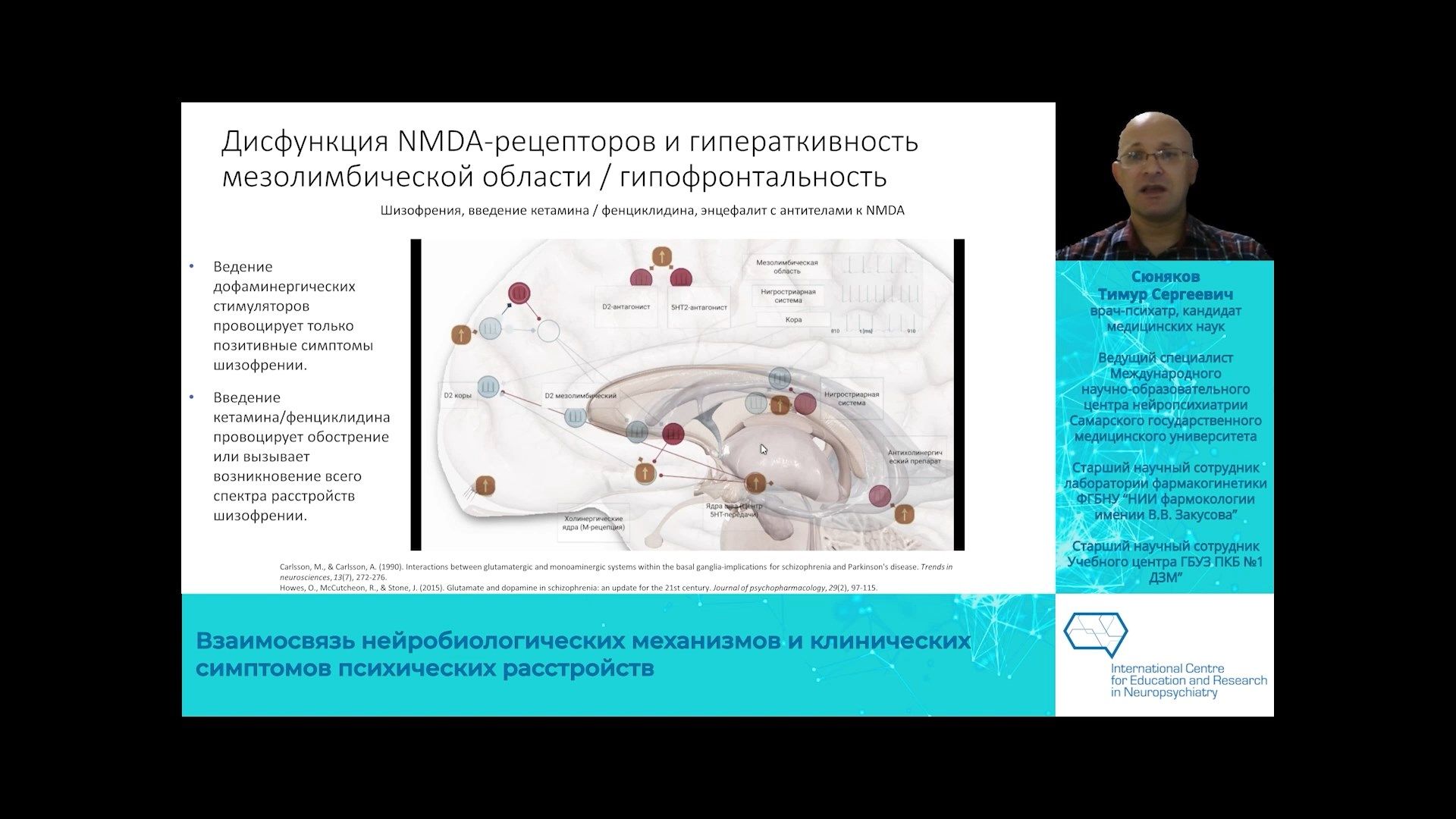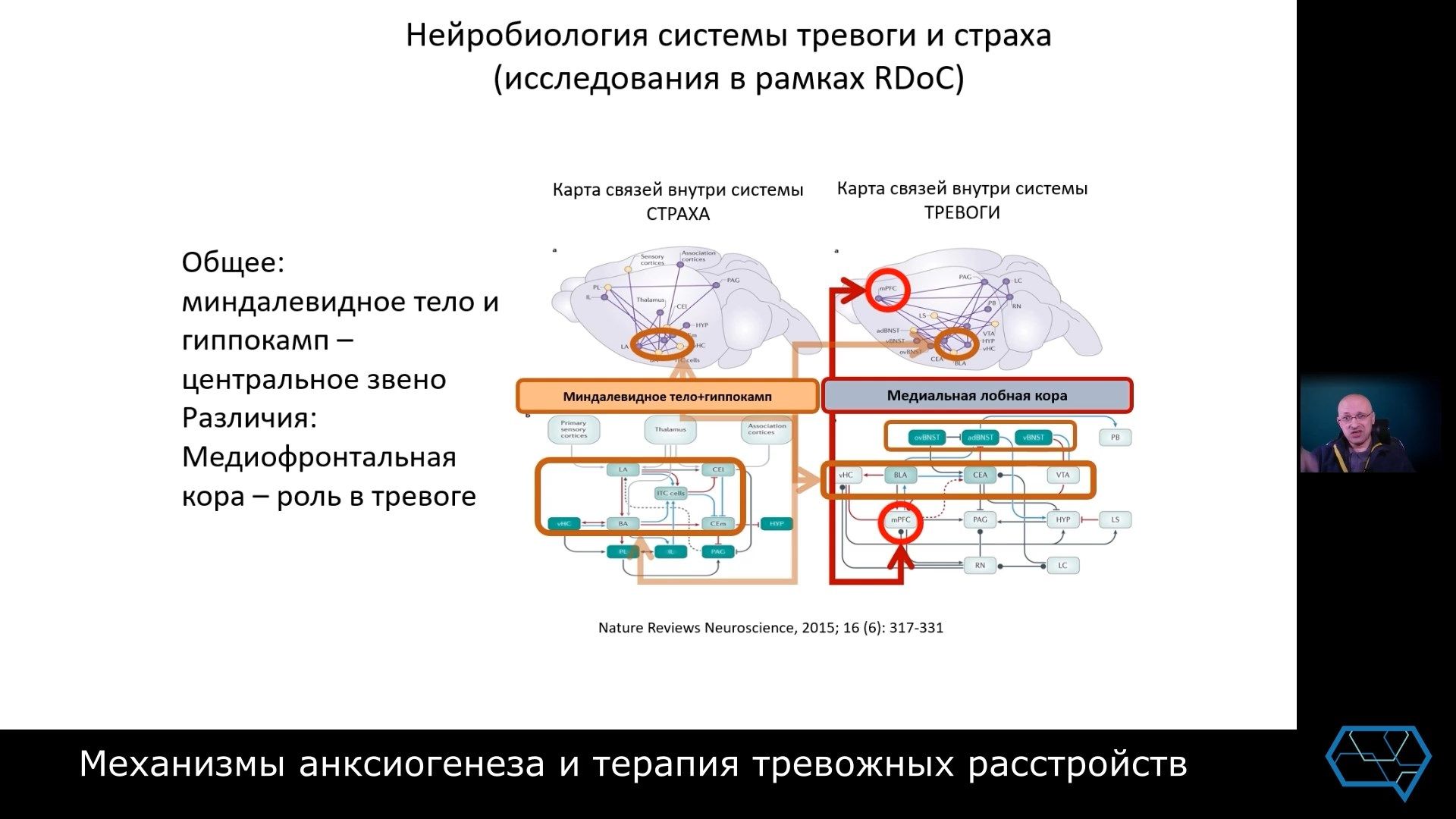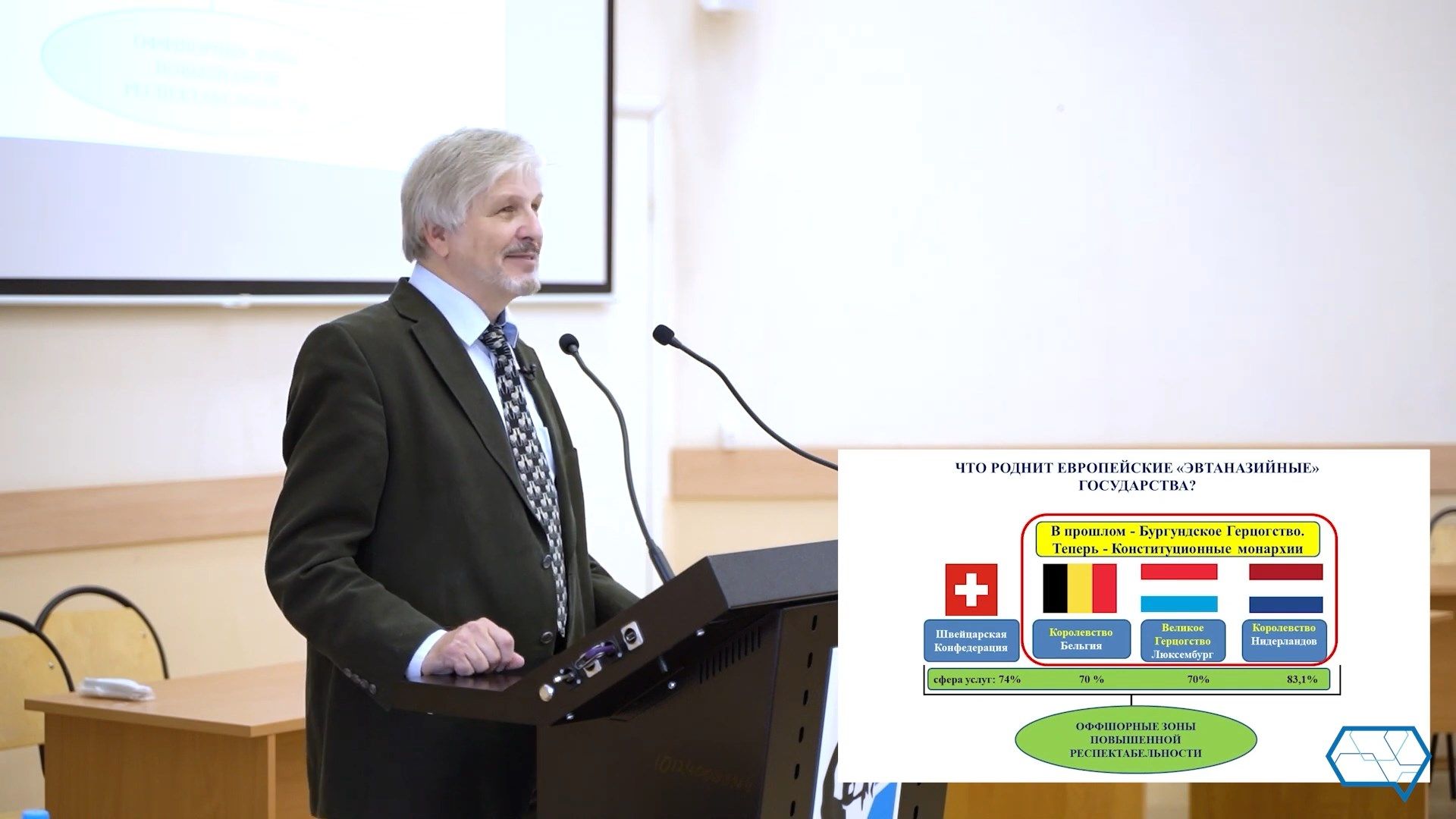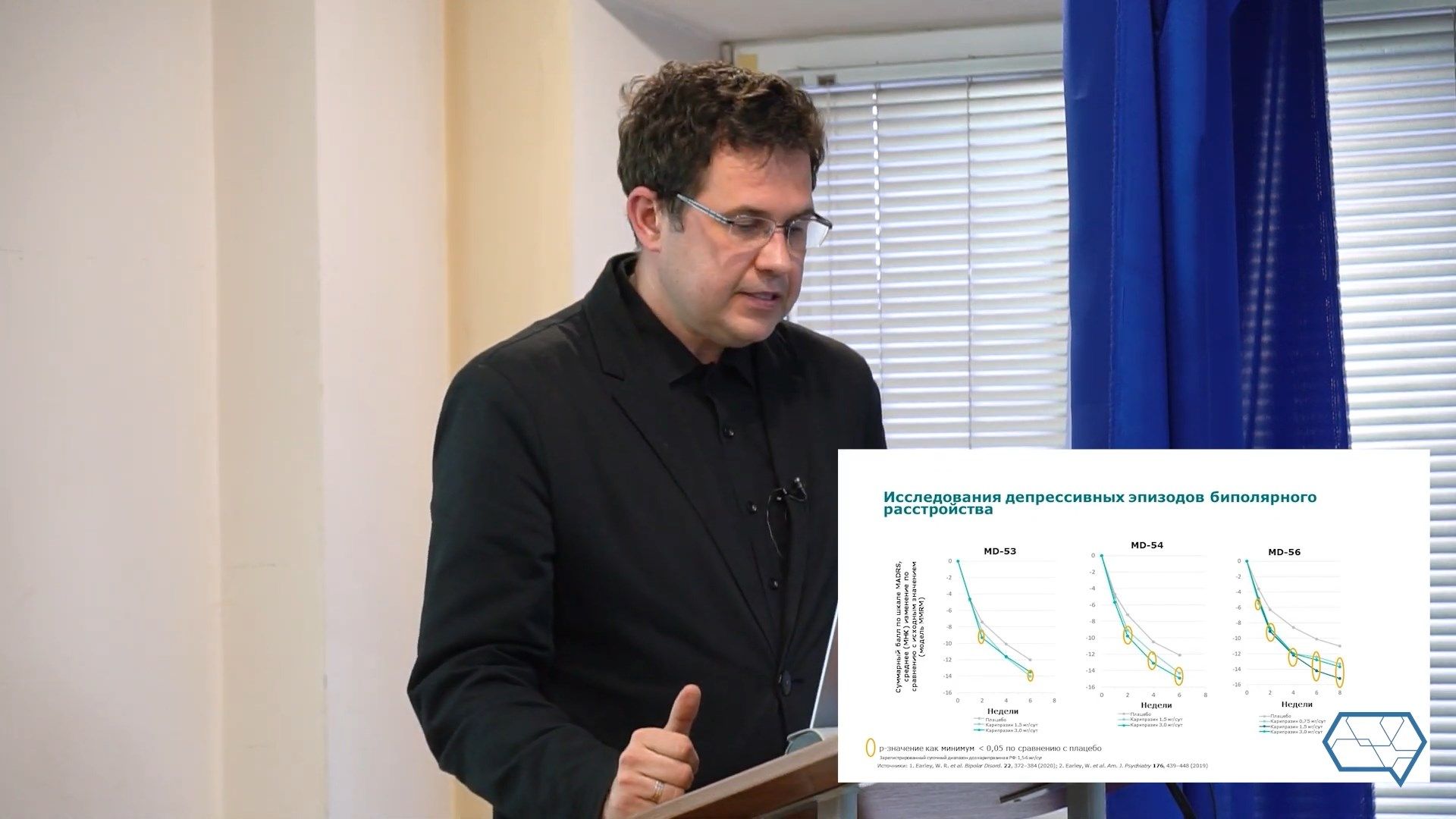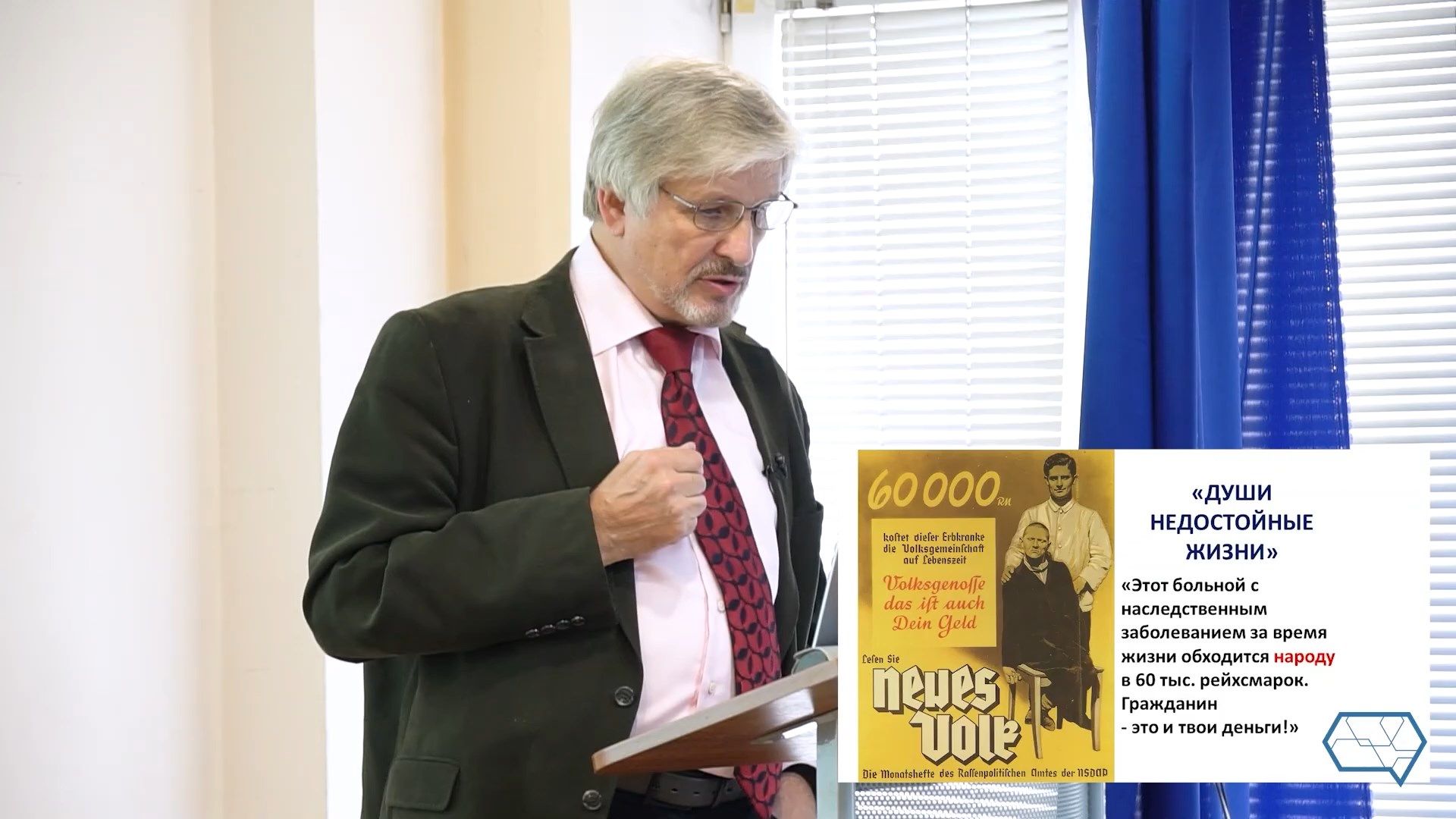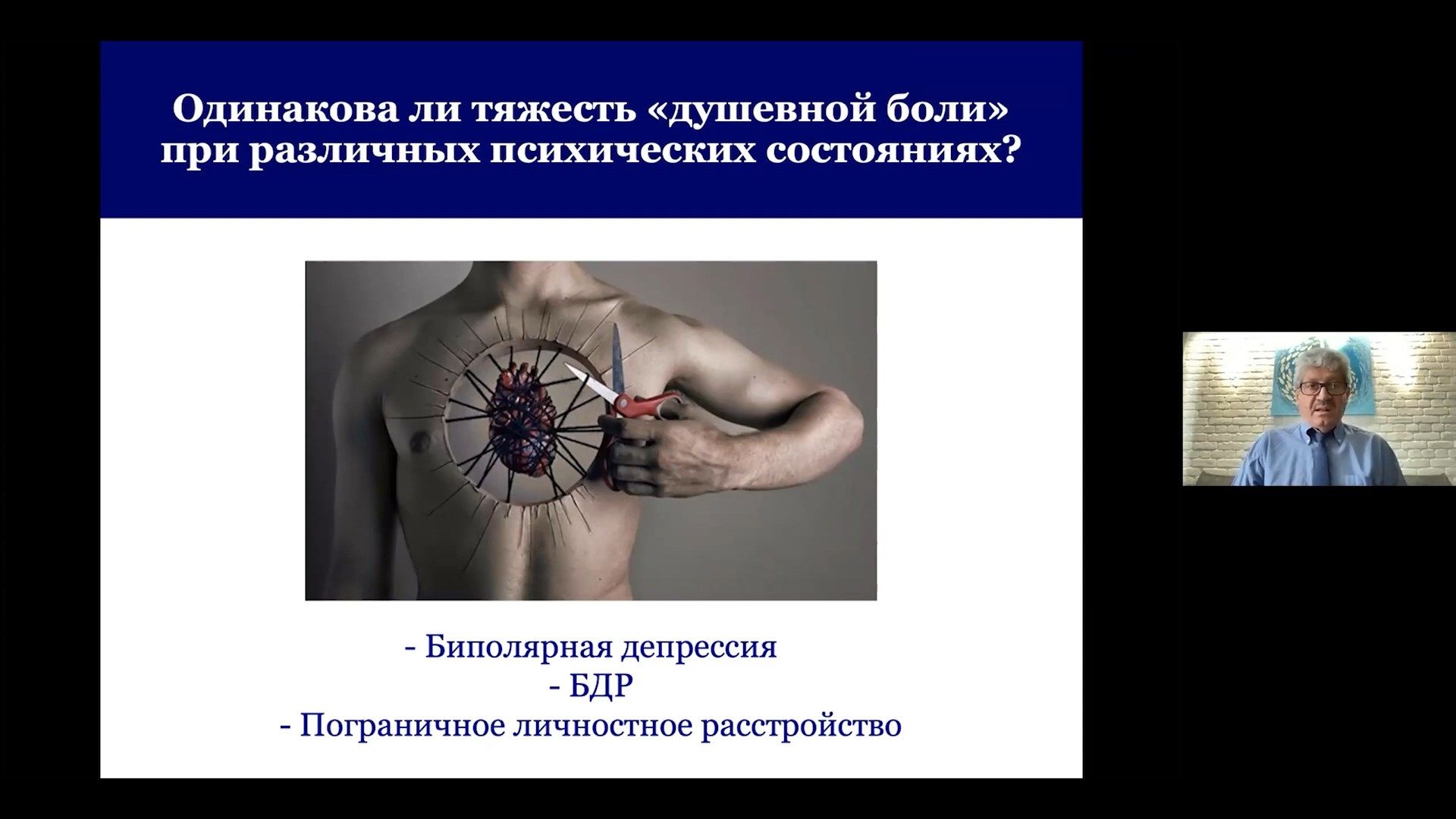15. The link between biological mechanisms and symptoms of psychiatric disorders
The link between biological mechanisms and symptoms of psychiatric disorders
Timur Syunyakov, MD, PhD (Psychiatry), Russia
International Centre for Education and Research in Neuropsychiatry, Samara State Medical University, Samara, Russia
Chief Coordinator on Statistical Data Analysis
Mental Health Clinic No. 1 n.a. N.A. Alexeev of Moscow Healthcare Department
Zakusov Research Institute of Pharmacology, Senior researcher, Moscow, Russia
The link between biological mechanisms and symptoms of psychiatric disorders
There is a notion that psychiatry is very different from the rest of medicine. As an explanation for this one can say that in somatic medicine a diagnosis have clear-defined causes and, more importantly, valid mechanisms, whereas in psychiatry the “substrate” of the disorder remains unknown. This lecture provides ground in favour of validity of psychiatric diagnostic since recent studies revealed meaningful and valid mechanisms underlying symptoms of psychiatric disorders. As an example, the mechanisms of disorders with high and low genetic underpinning are discussed.

